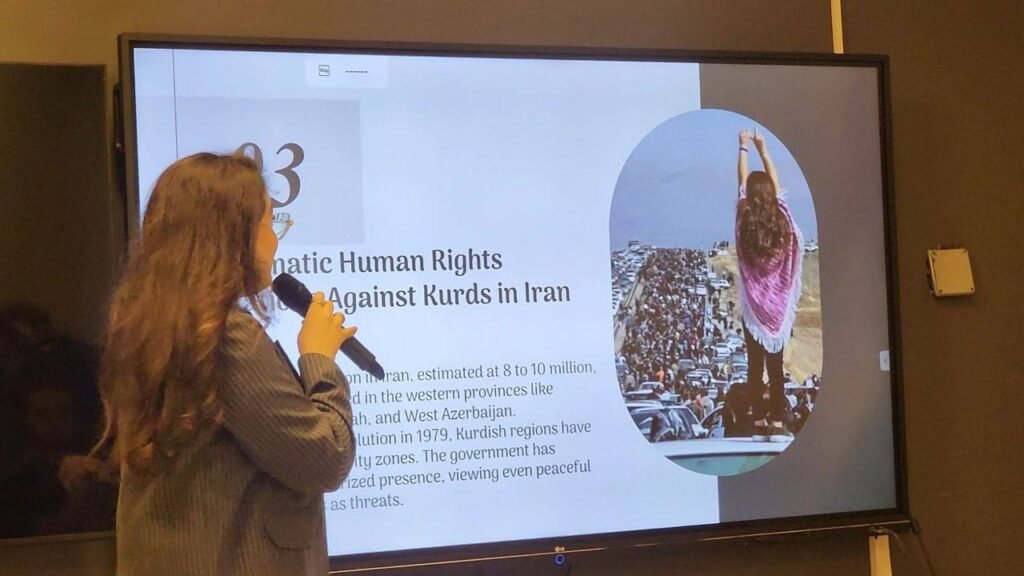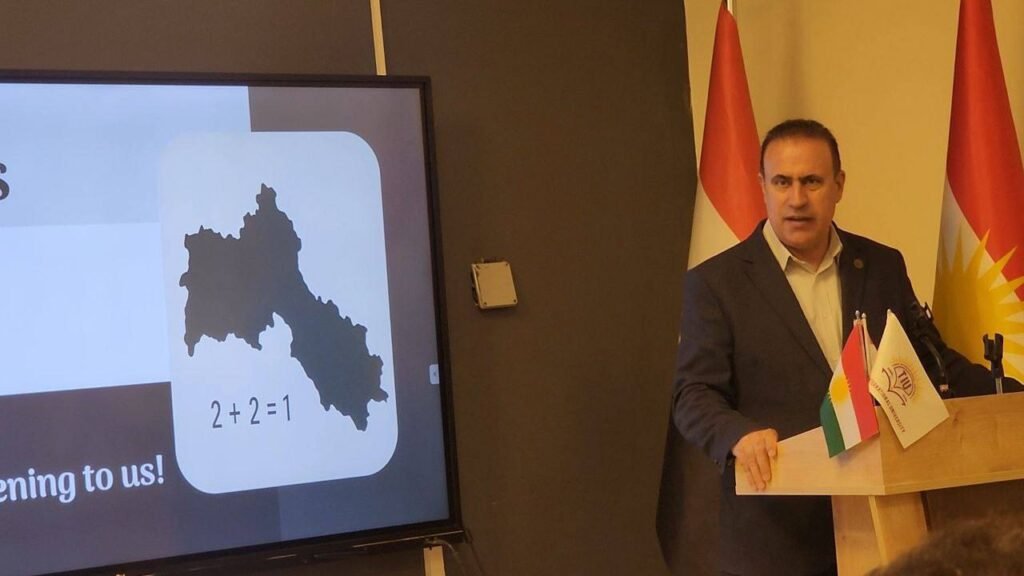On Sunday, May 18, 2025, a specialized seminar was held at Tishk University in Erbil, Kurdistan Region of Iraq, with the participation of human rights activists, researchers, and representatives of civil society. The event focused on the various dimensions of structural repression against the Kurdish people and the key role of Kurdish women in civil resistance movements
Based on field evidence and documented reports, the speakers highlighted the systematic repression imposed by the Islamic Republic through mass arrests, torture, suppression of freedom of expression, cultural, political, and economic discrimination, and the implementation of death sentences. These were presented as part of a long-term policy aimed at erasing Kurdish identity.
The state killing of Jina (Mahsa) Amini, due to her alleged violation of mandatory hijab laws, was described as a clear example of institutionalized violence against women — especially Kurdish women. Her death triggered a wave of nationwide uprisings and marked the rise of the “Woman, Life, Freedom” movement, in which Kurdish women have taken a leading and pioneering role.
The seminar also addressed the execution of Kurdish political activists, including Ramin Hossein Panahi in 2018, and four others in February 2024: Vafa Azarbar, Pejman Fatehi, Mohsen Mazloum, and Mohammad Faramarzi. These cases were presented as examples of how the death penalty is used to silence dissent.
The Hana Human Rights Organization, by presenting its annual report on the state of human rights in Kurdistan, provided a precise and well-documented account of the organized violations committed against the Kurdish people.
At the conclusion of the seminar, participants called for the immediate halt to executions, increased international oversight, and greater support for independent documentation institutions such as Hana.








